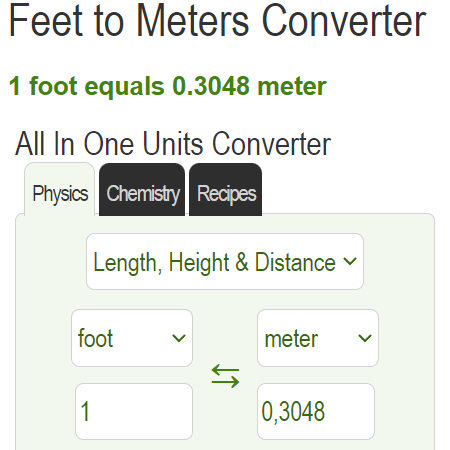1 micron to angstroms
1 micron is equal to 10000 angstroms
Micron To Angstrom Converter
| ⇆ | ||
|
|
||
|
🔗 Help our site grow by sharing it!
|
||
To find the value in micron that corresponds to a value in angstroms, multiply the value in microns by 10000 (the conversion factor). Here is the Conversion formula
Value in angstroms = value in microns × 10000
Let's say that you have 1 micron and you want to convert it to angstroms. By using the conversion formula provided above, you get:
Value in angstrom = 1 × 10000 = 10000 angstroms
This conversion formula works because one angstrom is equal to 0.0001 microns.
To convert a different value in microns, simply replace the value in the formula above with the new value.
What is the Relationship Between Microns and Angstroms
The Exact Relationship is Defined as follows:
1 angstrom = 0.0001 microns
This means that to convert a measurement from microns to angstroms, you multiply the value in microns by 0.0001.
Using The Calculator
Here is how to switch from microns to angstroms:
- Determine the measurement in microns that you are working with: For this example, let's use
1 micron. - Apply the formula: Multiply the value in microns by 10000:
Value in angstroms = 1 × 10000 - Perform the calculation: Youmay use want to use a calculator or do the math:
Value in angstroms = 10000 angstroms
Quick Tips For Mental Math
If you don't have a calculator handy, or you want to do a quick mental estimate, you can approximate:
- Use 10000 instead of 10000 for a rough estimate.
- For example:
- 1 micron ≈ 10000 angstroms, (10000, exactly)
- 2 microns ≈ 20000 angstroms, (20000, exactly)
- 3 microns ≈ 30000 angstroms, (30000, exactly)
Conclusion
You've learned how to convert microns to angstroms and vice versa! Use the formula angstroms = microns ÷ 0.0001 for accurate results, or approximate using quick mental math for a rough estimate.
Common Questions This Converter Can Answer
Basic Conversions
- How many microns are in 1 angstroms?
- 1 micron is equal to how many angstroms?
- What is 1 micron in angstroms?
Conversion Methods
- How do I convert from microns to angstroms?
- What is the conversion factor between microns and angstroms?
- What formula should I use to convert microns to angstroms?
Practical Applications
- How do I measure microns in angstroms?
- What's the equivalent of 1 micron when expressed in angstroms?
- How can I convert between microns and angstroms for my project?
Common Conversions
- What is 1 micron in angstroms?
- How much is 10 microns in angstroms?
- What's half a micron in angstroms?
Professional Use
- How do I convert microns to angstroms in technical documentation?
- What's the precise conversion rate from microns to angstroms?
- How do international standards convert between microns and angstroms?
Definition of Micron
A micron (μm), also called a micrometer, is one millionth (1/1,000,000) of a meter. This microscopic unit is crucial in:
- Industrial Applications:
- Air and liquid filtration ratings
- Surface finish specifications
- Paint coating thickness measurements
- Scientific Research:
- Cell biology measurements
- Particle size analysis
- Semiconductor manufacturing
- Quality Control:
- Material thickness verification
- Precision manufacturing tolerances
- Optical coating specifications
Definition of Angstrom
An angstrom (Å) is an extremely small unit of length equal to one ten-billionth (10⁻¹⁰) of a meter. This unit is primarily used in:
- Atomic and Molecular Science:
- Measuring atomic radii
- Crystal lattice spacing
- Chemical bond lengths
- Spectroscopy:
- Light wavelength measurements
- X-ray diffraction analysis
- Electromagnetic spectrum studies
- Nanotechnology:
- Molecular structure analysis
- Thin film measurements
- Quantum dot specifications
Related Conversions
Popular Length Conversions
Common Micron Conversions
- Microns to Millimeters - Technical measurements
- Microns to Inches - International standards
- Microns to Centimeters - Scientific notation
- Microns to Meters - Engineering calculations
- Microns to Nanometers - Microscopic measurements
- Microns to Angstroms - Atomic measurements



